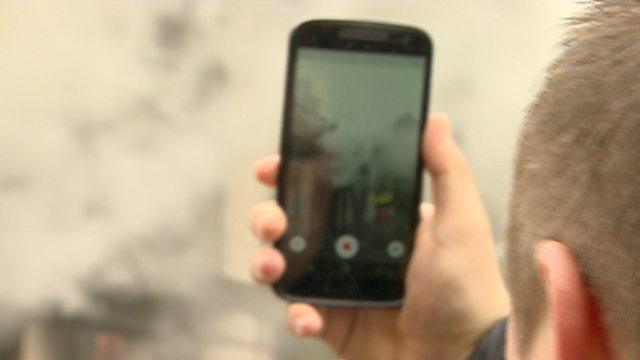West Midlands' first black female firefighter on her rise to the top
- Published
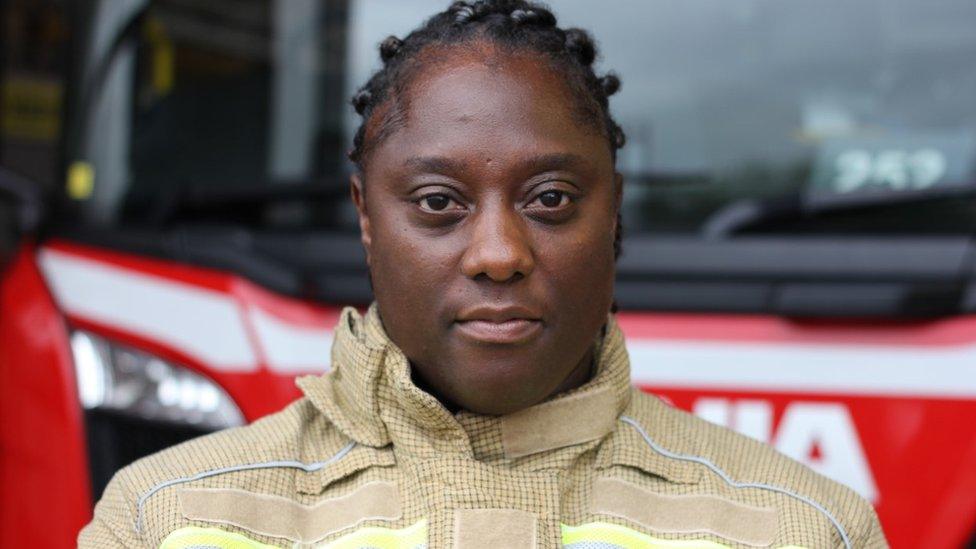
Samantha Samuels was 18 when she joined the fire service in 1990
One of the UK's first black female firefighters has said fire services need to do more to better reflect the communities they serve.
Samantha Samuels joined West Midlands Fire Service in 1990 at the age of 18.
Now a Group Commander, she features in We Are Firefighters on BBC One in the Midlands.
"If you understand and come from the communities you are serving, you will provide them a better service," Ms Samuels, from Wolverhampton, said.
"I've definitely had people surprised that there is a woman who is a firefighter and even more surprised there is a woman as an officer."
"The job itself is a male dominated job, as a young woman, I could do the job they could do and the environment wasn't ready for me.
"I had to break down some barriers."
Almost 18% of staff on West Midlands Fire Service are from an ethnic minority, one of the highest percentages in England.
However, across the West Midlands Combined Authority area, more than 35% of people are estimated to be from an ethnic minority background.
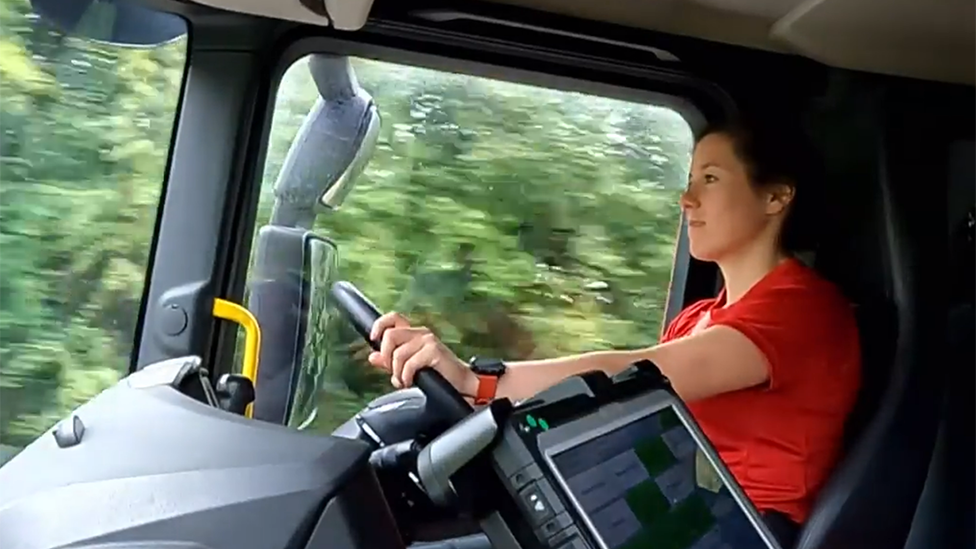
Leanne Player said she often had some odd looks when people saw her driving the fire engine
Ms Samuels said she did not realise when she joined that she would be the first black female in the West Midlands service.
"It was hard work... at first, mentally, physically and spiritually, and I had to get over all the stumbling blocks.
"I was disappointed with the reaction to me, the service wanted to promote me, rightly so, but that comes with negativity and animosity."
Ms Samuels said while today there were more women and people from ethnic minorities, there is still a gap to fill.
"We want to make more of a difference," she said.
'Odd looks'
The episode, part of the We Are England TV series, also follows the lives of Leanne Player and Simon Hawkins from Hereford and Worcester Fire and Rescue Service and looks at the importance of diversity.
Ms Player, a full-time firefighter in Bromsgrove and on-call firefighter in rural Herefordshire, said she had received "some odd looks as a woman in the fire service," particularly when driving the fire engine.
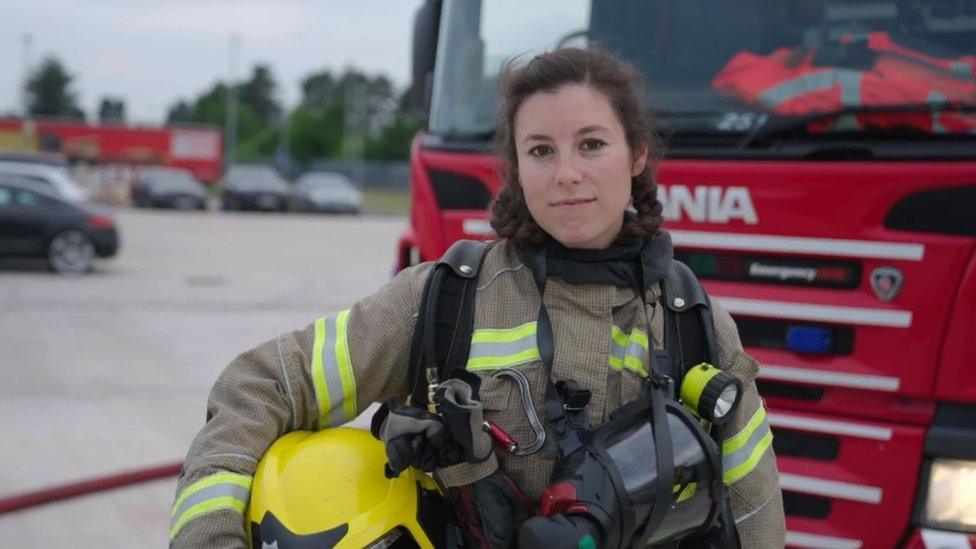
Leanne Player was inspired to become a firefighter by her uncle
Ms Player was inspired to join by her uncle, who has been in the service for 45 years, and remembers "chasing his fire engine down the playground".
Separate toilet
When she was around 14 years old she remembers only one female firefighter working alongside her uncle.
"They had to make a separate toilet for her. When she left and I joined years later, at least I had my own toilet to use," Ms Player said.
She added that men and women working alongside each other was beneficial.
"I'm lucky that I've got some strong male firefighters on my watch, because when it comes to those incidents when you're carrying that heavy cutting gear, they're a lot better than me at carrying that gear and using that gear.
"Whereas I'm much better with the casualty, with the people - so we all play to our strengths and weaknesses."
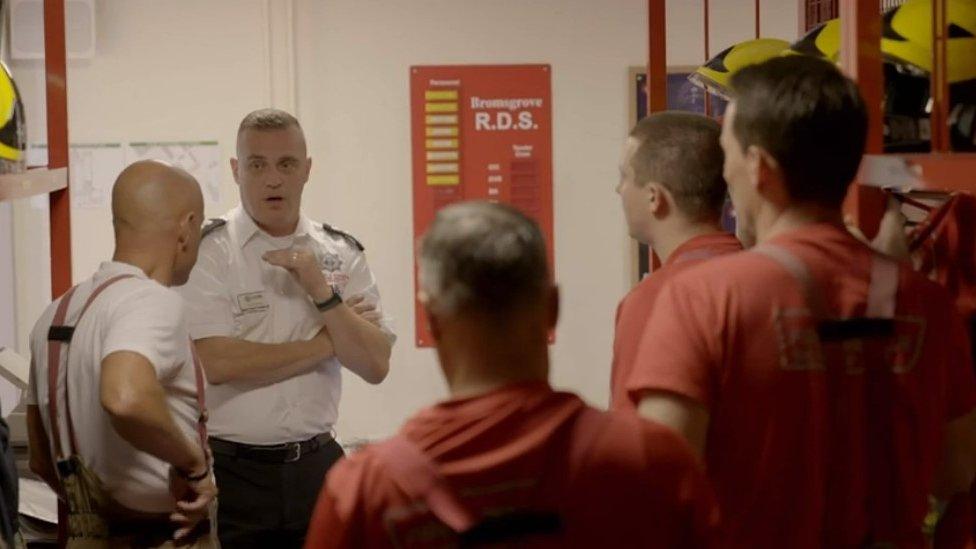
Simon Hawkins lost his left leg in 2004
Mr Hawkins, 48, has been in the fire service for 28 years. In 2004, he was involved in a collision while on his motorbike, which resulted in him losing his left leg below the knee.
'First amputee firefighter'
The station commander at Bromsgrove and Tenbury Fire stations, said his wife Annie, encouraged him to get back to work.
"She got all the information for me of firefighters who had lost their legs in America and she said if they can do it why can't we".
It took Mr Hawkins 18 months to get back to work and in the process becoming what is believed to be Europe's first amputee firefighter.
According to a survey completed in 2021 by Hereford and Worcestershire Fire and Rescue service, only 2% of the workforce identified as having a disability.
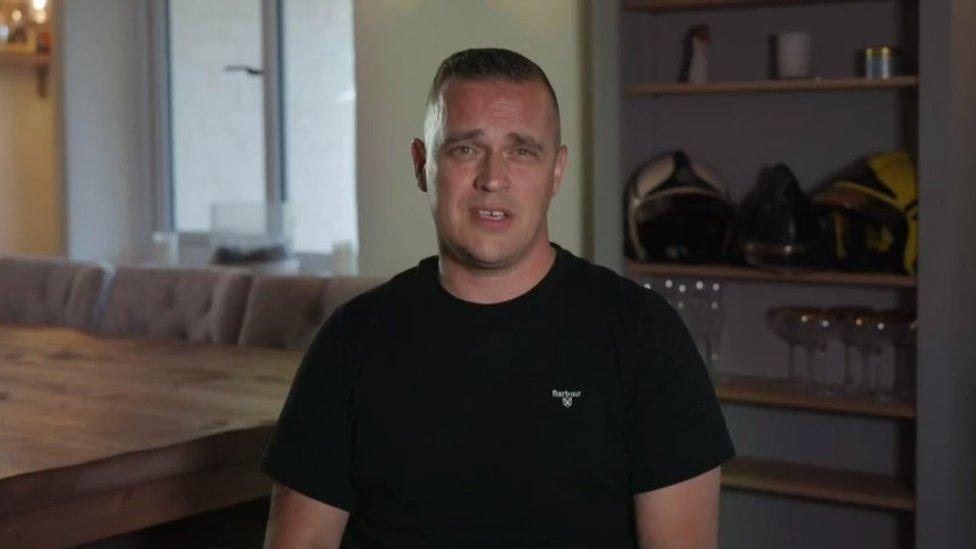
Mr Hawkins is the station commander at Bromsgrove and Tenbury Fire stations
"People with disabilities bring different skills, and these different skills are really beneficial to the modern day fire service," Mr Hawkins said.
One thing that is touched on in the episode is how the Grenfell Tower disaster has changed the way fire services work.
Seventy-two people died in the tower block fire in 2017, in one of the UK's worst modern disasters.
"It's given us pinpoint focus on operational responsibilities and understanding the importance of meeting the needs of our diverse communities," Ms Samuels said.
An inquiry into the disaster heard that it was "inextricably linked with race".
"We have taken on board what happened, changed, evolved and improved," Ms Samuels added.
"We are here to make sure nothing like that ever happens again."
We Are Firefighters is part of the We Are England series and broadcasts at 19:30 GMT on Friday 28 October on BBC One in the Midlands, and on iPlayer.

Follow BBC West Midlands on Facebook, external, Twitter, external and Instagram, external. Send your story ideas to: newsonline.westmidlands@bbc.co.uk, external
Related topics
- Published12 June 2017
